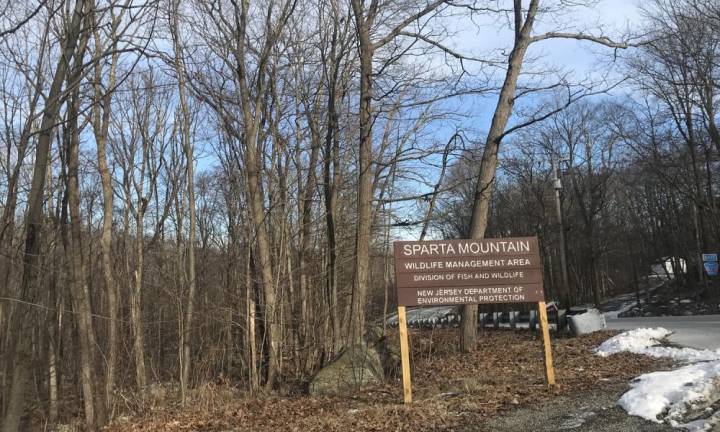Sierra Club's concerned about Sparta Mountain

The New Jersey Division of Fish and Wildlife (NJDFW) are going to resume cutting at the Sparta Mountain Wildlife Management Area on or about Feb. 17, 2020. The objective according to the NJDFW is to restore young oak-hickory forest by opening the canopy to allow for the growth of young oak and hickory trees, blackberries, sedges, and a variety of other shrubs and sapling species, thus creating breeding and/or foraging habitat for more than 60 different bird species, including the endangered Golden-winged Warbler.
The forests in the Highlands act as natural filters and sponges, and the canopy protects the clean drinking water for 6 million people.
Opening up this forest to logging will cause more stormwater runoff, more silt and pollution in our waterways, and will release more carbon. Bringing heavy equipment into the forest will result in soil impaction and will change the ecology of the forest. Studies show that it will take 80 years or more to regrow trees and capture the amount of carbon that is released from cutting down the trees. This mountain belongs to all of us, not to private loggers. The logging of Sparta Mountain is a violation of public trust. These lands were purchased to protect our water supply and contiguous forest. With this plan, they want to turn the Highlands into the Stumplands.
The location of activities will be Stand 8, just south of the powerline and east of Edison Bog in Sparta Township. The size of the cut will be approximately 9.1 acres. According to the NJ Division of Fish and Wildlife, all cutting will cease prior to April 1, 2020 but may resume after Nov. 15, 2020.
“This plan is a clear cut violation of the reason we passed the Highlands Act which protects canopy forest. The DEP is violating that by using the Golden Warbler habitat as a rationalization to clear-cut an environmentally sensitive forest in the Highlands. There are 75 different species of neotropical songbirds that would be impacted by logging on Sparta Mountain plan, in addition to harming threatened and endangered Bat species. This plan does not have any rules or enforcement in place for commercial loggers. That means there is no penalty if they clear cut important forest canopy, clear cut, run skidders through streams and do a lot of damage because there is no mechanism for enforcement,
Heavy equipment will be used. Skidder and/or shearing equipment, similar to typical construction equipment such as a small-medium excavator, will be hauled on Rock Lodge Road to the access road on a trailer at the beginning of the project, left on site during the project, and hauled out on a trailer at the end of the project. Tri-axle log truck, similar to a garbage or propane truck, will transport approximately 194 cords, or 19-20 truckloads of logs over the course of two to twelve months, out of the access road onto Rock Lodge Rd.
Logging equipment will compact the soil, leading to more runoff and more pollution of waterways. The canopy of this forest protects the drinking water for millions of people, and allowing logging practices in these areas will result in a decrease of water quality.
120 years ago, we had very few trees or forests left because of timber and fuel logging. The forests have since recovered into mature canopy forests throughout a large portion of the state. The problem becomes how to manage and protect them. Most forests in New Jersey are not in public ownership; they are owned by large landowners or non-profits. It is critical that the NJDFW makes sure these cuts in Sparta Mountain are done with proper enforcement to protect the wildlife there.
Jeff Tittel
Director of the New Jersey Sierra Club.